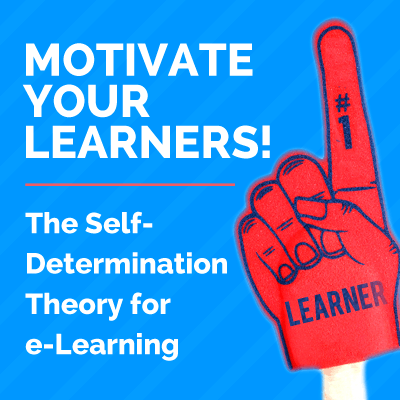First, let’s take a look at the basics of the Self-Determination Theory, like what it is, where it came from and who the brains behind it are.
What is Self-Determination Theory?
Self-Determination Theory (SDT) is a theory of motivation, focusing on supporting our natural tendencies (this is where the self comes in) to behave in effective ways (think determination and motivation).
Where did Self-Determination Theory come from?
Edward L. Deici and Richard M. Ryan initially developed the Self-Determination Theory. (Deici is Professor at the University of Rochester in the Department of Clinical and Social Sciences in Psychology in Rochester, NY, and Ryan is a clinical psychologist and Professor at the Institute for Positive Psychology and Education at the Australian Catholic University in Sydney Australia.) Since then, scholars in many countries have elaborated and refined the theory. Self-Determination Theory has been used all over the place—in education, organizations, sports and physical activity, religion, health and medicine, parenting, virtual environments and media, close relationships and psychotherapy.
Sounds pretty cool, right? Now, let’s make it relevant to e-Learning.
How does Self-Determination Theory apply to e-Learning?
When you satisfy a learner’s need for 3 items, the learner will be motivated and will succeed in higher-quality learning. These 3 needs are:
- Competence
According to the American Psychological Association (APA), “students experience competence when challenged and given prompt feedback.” Challenge your e-Learners with content that’s appropriately difficult. A course that’s obnoxiously easy won’t be taken seriously by anyone. In addition, provide timely feedback throughout your course, so your learners will be motivated to continue. Here are a few tips: 4 Tips to Give Helpful Feedback to Your e-Learners. - Autonomy
The APA says that “students experience autonomy when they feel supported to explore, take initiative and develop and implement solutions for their problems.” One way to provide autonomy in an e-Learning course is through branching scenarios. These provide a “choose your own adventure” experience to the online training, which lets the learner take control and become motivated to problem solve on his own. Read more about branching scenarios here: Learning Takes Root with Branching Scenarios. - Relatedness
“Students experience relatedness when they perceive others listening and responding to them.” Get your learners on a team! Create an e-Learning game that encourages employees to connect with each other in a team environment. When learners feel like other people can relate to them and that they’re connected with those people, it motivates them to succeed.
(And while we’re in the team spirit, did you know that you can collaborate with your development team in the cloud using Lectora® Online V2.0? Try motivating your own team with relatedness and sign up for a free trial today!)
Now you’re ready to satisfy your learners’ needs for competence, autonomy and relatedness. Get ready for motivated, successful learners and employees—all thanks to the Self-Determination Theory.
For another fun psychology read on how to motivate your learners, check out this blog post: The Secret to e-Learning Success and Happiness: Flow.









